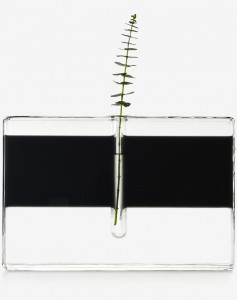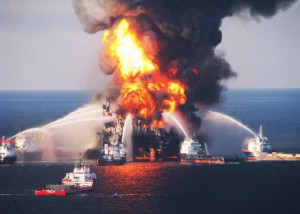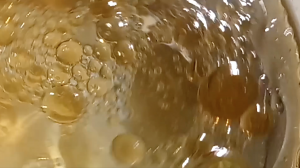Who are Studio Wieki Somers and Thomas Eyck? During this research I posted myself the question what the relationship is between them and why they want to make a project about the problematic issues of our world society. I also got inspired by the specific work called ‘Deepwater’ which is related to the oil problem in the world. This motivated me to question and think of how to solve this problematic issue much further.
Back in 2000, Wieki Somers (Dutch designer, born in Sprang-Capelle, 1976) graduated from the Design Academy Eindhoven. After her graduating she settled with Dylan van den Berg, with whom she studied in Eindhoven. Together they started Studio Wieki Somers in Rotterdam. Wieki Somers and Dylan van den Berg are focusing on providing an enlightened reading of the everyday movement. Focusing and making sensitivity of materials, technological ingenuity and fantasy. They make objects that you as out-stander at first have to guess what it is and what they are doing. That is the whole point of what they want, making an art piece with a functional state in it. ‘‘Basically our work is one big quest, one big process. We look at things around us, what they can be and the associations people have. We study customs everyday situations, unleashing our own imagination on them. We make the uncommon common.’’ thus Wieki Somers
‘’As a designer it’s not my attention to make the world a better place, but I’m pleased if people look at the world differently because of my products.’’
People get ideas and inspirations from the work of Wieki Somers and that’s also how Thomas Eyck got involved. Thomas Eyck is a publisher and collector and he divide characteristic and exclusive design products from this time. He stimulate designers to come up with new objects for the daily life. Together they research for different kinds of materials and making new products out of it. This is how the Deepwater work was made when Thomas Eyck asked Studio Wieki Somers to worked together.
The Deepwater work is created in collaboration between Studio Wieki Somers and Thomas Eyck in 2016. It immediately caught my attention while I was walking through the exhibition of “Change the System’’ in Museum Boijmans Van Beuningen. The work is simple, yet very impressive. It has a strong design in contrast to the other works presented in the same room. Deepwater represents a vase which is a collection of the design “Still Waters’’. Thomas Eyck commissioned Studio Wieki Somers to design a series of objects with the theme “water”. These series are five glass vases and each form a poetic interpretation of the water cycle. The vases represent a topical theme regarding the problematic relationship between humans and nature.
The Deepwater vase is made out of glass filled with oil floating on water. In the center of this vase a stem with leaves is represented. The oil refers to the disrupted human actions like the results of the eco-catastrophe “Deepwater Horizon’’, this was an industrial disaster that began on April 20, 2010 in the Gulf of Mexico. It was a big explosion of the drilling platform Deepwater Horizon. Studio Wieki Somers and Thomas Eyck wanted to show how conflicting the values are that ascribe our resources.
How can you stimulate more people when you think about this collection? And in my case about the oil problem. Because using oil is something we should take very seriously if we think about our precious world. Our nature is capable of breaking down oil itself, but this is going very slowly. The quantities of oil that enter the environment through human intervention are so great that nature has difficulties with it. Of course the place plays a role, normally it is safely stored under the ground but when it comes into the water or on land it is just a strange substance. Just what happened to the Deep Water Horizon catastrophe. How can we clean up this mess if we constantly spill so much oil?
Thankfully there are many ways to clean the oil out of the water. I found materials and information and tried these out:
Of course this is not enough for an entire ocean, but it’s clearly that we could discover more with materials just like Wieki Somer and Thomas Eyck are presenting. We have to dig deeper and come up with much bigger ideas to solve the oil problem. There are machines or boats with different kinds of techniques by getting out the oil out of the ocean, but still there will be leftovers and we discover that years later by accident. Of course we think of other different ways to solve this for the future, for example; using electricity. The using of oil are mostly for machines and vehicles and these will run in the future with electricity.
So yes, just like Wieki Somers I would feel the same way by not making attention to make the world a better place, but to encourage and to let people think about these kinds of topics. I think we discovered already so much about materials, technologies and objects to improve our environment. Who knows what further will be discovered in the future.


